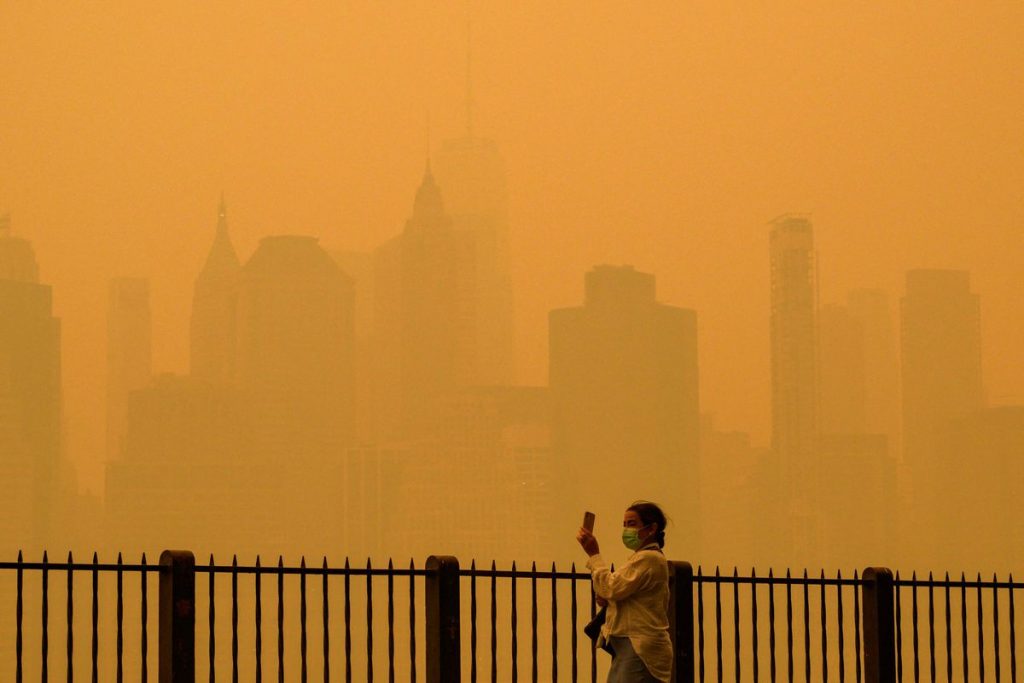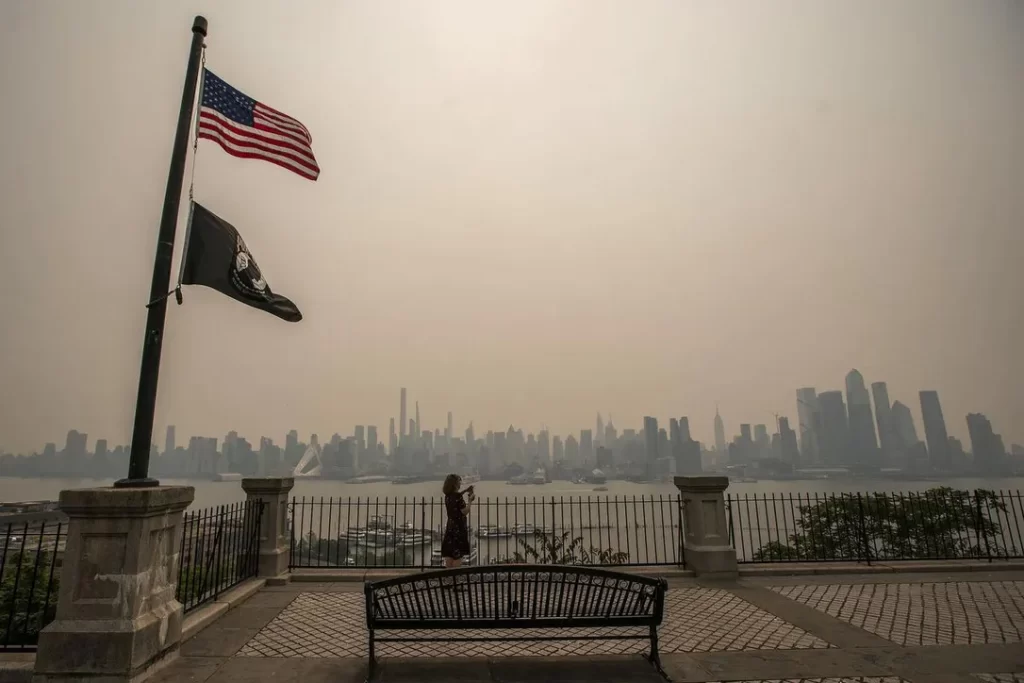New York City and the Northeast region of the U.S. are currently grappling with an unparalleled air quality emergency as a dense haze of smoke engulfs the area. The alarming situation, triggered by raging wildfires in Canada, has plunged the region into a state of hazy skies, limited visibility, and health concerns for vulnerable individuals.
The mesmerizing New York City skyline, usually a sight to behold, has vanished behind a mysterious shroud of smoke. Social media platforms are abuzz with haunting images and videos capturing the surreal sunrise over the city’s renowned skyscrapers. The Yankees had to resort to illuminating their stadium due to the smoke’s high concentration during their match against the Chicago White Sox.
However, the impact of this atmospheric disturbance extends far beyond New York City’s borders. Communities from Maryland to New Hampshire have reported haziness and reduced visibility. The scent of smoke has become so overpowering in parts of Pennsylvania that emergency services have witnessed a surge in 911 calls.

Due to the thick smoke, authorities were forced to issue multiple air quality alerts for the whole area. Children, the elderly, and those with heart or lung conditions are particularly at risk from the smoke’s dangerous chemicals and particles.
Alarmingly high levels of air pollution have been recorded, with Wilmington, Delaware, registering an Air Quality Index (AQI) of 199, which is considered to be “very unhealthy.” The air quality in New York City has been degraded to “unhealthy,” and visibility has decreased to less than one mile in some areas.
Transportation systems have been severely affected, resulting in ground stops at Newark Liberty International Airport in New Jersey and LaGuardia Airport in New York City due to reduced visibility.

To safeguard public health, New York City Major Eric Adams has urgently advised residents to curtail outdoor activities, while New Jersey officials have recommended minimizing time spent outside. Schools have canceled outdoor events, and workers exposed to the outdoors have been advised to wear N95 masks.
This unprecedented air quality crisis in the Northeast serves as a stark reminder of the global consequences of wildfires and the pressing need to combat climate change while safeguarding air purity. Efforts must be intensified to implement measures that preserve and protect the air we breathe, ensuring a sustainable and healthy future for all.


